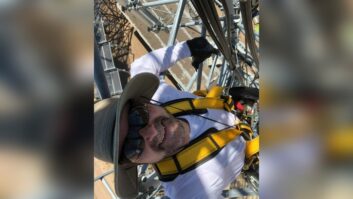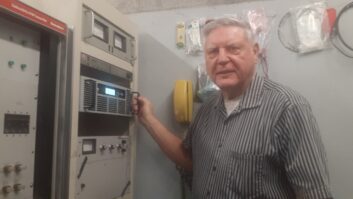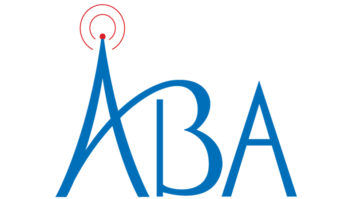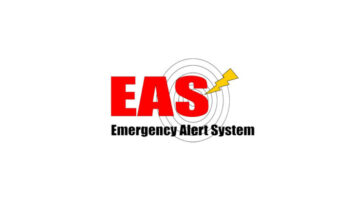
This is one of a series of interviews from the recent Radio World eBook “HD Radio and the Case for ROI.”
Scott Alexander has experience both with formatting his own HD-2 signal as well as leasing one out. He is CEO/president of Scott Communications Inc. and Alexander Broadcasting Co. in Selma, Ala. These separate but related family-owned companies, with a 44-year radio history, are licensees of WALX(FM) in Orrville, playing classic hits as “Alex FM”; translator W268BQ, playing country by picking up an HD-2 multicast from WALX; and WJAM(AM) in Selma and an associated FM translator W242BW, both airing as “Jammin WJAM.” Meanwhile, according to published reports, its station WMRK(FM), licensed to Shorter, Ala., and serving Montgomery, which is operated under an LMA with EMF Broadcasting (K-Love), has recently leased its own HD2 to American Family Radio in turn, though Scott Alexander declined to confirm that as you read below.
Q: You’ve been involved in leasing at least one HD2 signal to an organization that uses it to feed a translator. What’s the relationship, who’s doing what?
A: Because of contractual obligations, I cannot comment on the details, but yes, we have American Family Radio on WMRK-HD2 in Montgomery. Not only have we added HD services in Montgomery, we also added HD services in our small market of Selma.
There is still a problem with HD Radio being recognized, as far as the general public is concerned. For us to have made an investment into HD, we had to have translators to make it beneficial to us in the small-and medium-sized markets.
When it comes to HD Radio and the general public, some are aware, but most still are not. Even to this day. A couple of weeks ago I was at a couple of car dealers, and they still don’t understand what they have in their products. I talked to a car salesman at a local tractor show recently, and he had a nice Chevrolet pickup truck on display and I asked if it had an HD Radio in it. He said, “Yes, it does have satellite radio.” I said, “No. Does it have HD Radio in it, the one that pertains to terrestrial radio?” And he said, “What is that?”
We’re still trying to educate the public. We’re still trying to educate the vendors. Even going into a Best Buy, I’m still asking these questions as a broadcaster and still having problems with people understanding what it is and what products they do and don’t have with HD Radio.
When we look into the expense of adding HD Radio services to our facilities, we have to consider what’s going on in the marketplace and how are we going to get a return on our investment.
Q: In your opinion, does the translator strategy itself justify the investment in HD Radio?
A: It is the only way we justify it at this time. As long as you have a translator or someone who is willing to use theirs. We are trying to push it, to explain to our listeners what we have and what they have if they have an HD Radio in their vehicle or at home. It’s an education process; but until that process catches, we’ve got to have an analog counterpart to make it work for us.
Q: You have two stations on which you’re leasing out HD2s?
A: At the moment, I have just one that was mentioned before. The other HD services are either tied to one of our own translators or we have partnered with another broadcaster in a market where we are sharing expenses and doing things together. They may have a translator [while] we had the HD service or vice versa. Instead of leasing it out, it was more advantageous for us to be working together to try to generate revenue and provide a service.
This is [our] one exception, as far as leasing is concerned. Maybe in major metros, the lease payment to a station may [justify] the capital investment in the HD equipment. But in our case, there was more to it than just the possibility of a lease. “What’s it going to benefit for us to do the other HD services and how much we are going to gain out of this by making that capital investment of HD equipment or the cost of the translator?”
Q: So for you the ROI is primarily about your own ability to use translators.
A: Absolutely. And this [HD2 lease] was the one exception to what we’ve been doing. Now, if somebody approached us and we have one available, then we’ll consider it, absolutely; but the offering out there, what people are willing to pay for the lease at this time for our size markets, doesn’t justify by itself the expense of adding HD.
Q: Whom are you partnering with?
A: We have joint business arrangements with two other Montgomery Broadcasters at this time. In Selma we’ve done our own. There was a void in the market three years ago. A void was made by a competitor of abandoning a format that was very popular. We said, “You know what? We’ve got a translator. Let’s put that format back on the air.” That has worked out well for us, where we added HD service to our existing facility.
Q: What else should we know?
A: Looking at a capital investment, it does give you an opportunity to provide additional services to the community. You’ve just got to weigh whether that’s going to produce and what the return on that will be over time.
As far as looking at it for leasing purposes, I would look into the options of leasing at least one of the HD channels to offset the expense, and I am hearing about some broadcasters getting decent monthly lease fees for their HD-2/3 channels in bigger markets, but not so much at this time in small to medium markets.
Q: What about the idea of a pure-play multicast, doing an HD2 just for the sake of doing the HD2, a new format of your own?
A: Without a translator?
Q: Right.
A: At this present time, no I would not do it without a translator; I’d still be waiting until the marketplace — where more car manufacturers are putting the HD Radios into all of their models. There are still a lot of new vehicles being sold without HD Radios in them. As I said before, there needs to be a lot more education to the general public. That’s going to fall upon us, the equipment suppliers, the manufacturers and the people that license [the technology]. We all need to promote this more.
It’s getting out there. The market penetration is climbing due to the fact that translators are being able to fill in for these things. But [the] education … is still not where it should be, in my opinion.







